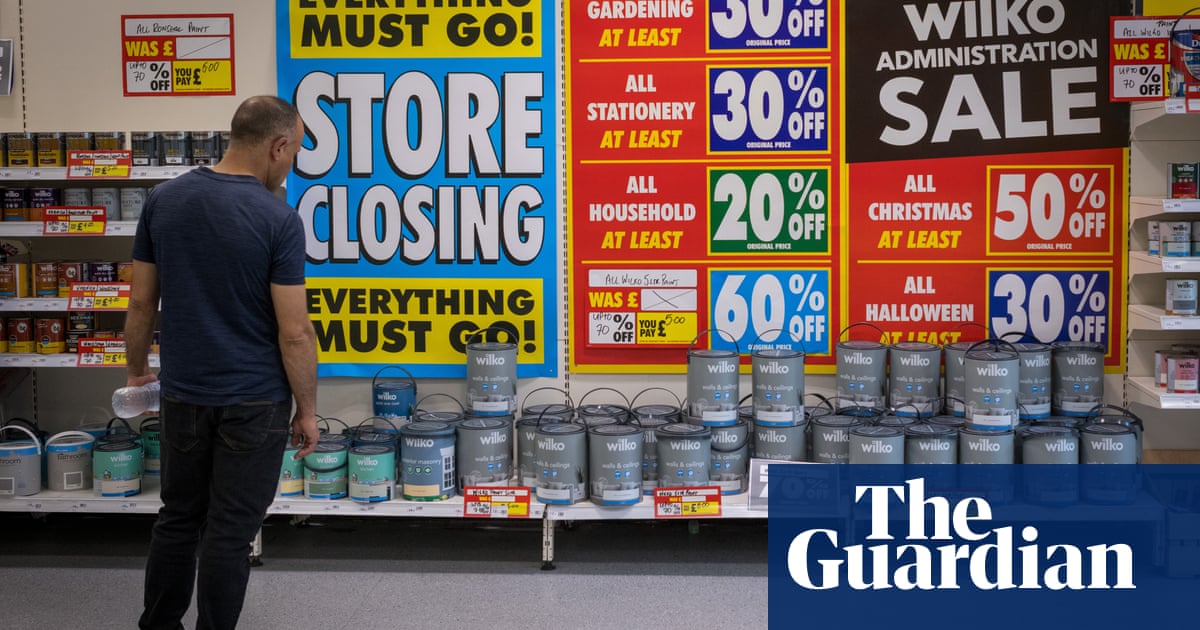
Food producers have said the challenges they face are “the toughest in a generation” as members of the National Farmers’ Union met for their annual conference after the first full year of Brexit.
Farmers from England and Wales gathered in Birmingham on Tuesday, against the backdrop of huge upheaval in agriculture, with labour shortages caused by Brexit and Covid, an ongoing pig cull and the transition to life beyond the EU’s subsidy scheme.
The day opened with a blistering attack on ministers from the National Farmers’ Union (NFU) president, Minette Batters, who accused the government of having no post-Brexit plan and of showing a “total lack of understanding of how food production works”. Her views were echoed by farmers speaking from the floor of the conference.
Sam Godfrey, a pig farmer from Lincolnshire, said it was the “toughest time” he had known in 14 years on the family farm, while his father said he had not seen such challenging conditions since the 1970s.
Godfrey, who has a herd of 6,500 sows, said pigs were still backing up on their farm, as abattoirs continued to take fewer animals to slaughter each week than planned. This is despite the family having invested £50,000 in converting buildings into extra space to house their pigs. “We have some spare capacity,” Godfrey said. “But we have never had a situation where it was this prolonged.”
The NFU estimates that 200,000 pigs are backed up on farms in England, and are unable to be taken to slaughter as a result of labour shortages at abattoirs. Meanwhile, 40,000 healthy animals are thought to have been culled, and have not entered the food chain.
Batters told the conference she had received a “heart-breaking” email from a family, who did not want to share their name, who had been producing pigs for more than 50 years. “They have taken the decision to cull 4,700 sows,” she said. Their son had hoped to enter the family business after completing an agriculture degree but had been forced to find another job.
The government recently announced an immediate review of fairness in the pig industry supply chain and extended measures to support pig producers, including permitting foreign butchers to travel to the UK on temporary visas, longer working hours at processing plants and a scheme allowing producers to store carcasses for several months before processing.
However, ministers have stopped short of providing financial support to affected pig farmers, in contrast with Scotland, Northern Ireland and some EU countries.
One agricultural company, Thanet Earth, which grows tomatoes, cucumbers and peppers in glasshouses in Kent, said it had lost £320,000-worth of produce in 2021, when crops could not be picked at the right time to sell to its primary customers.
“Some of it went to charity, but it hits us as a loss because it is a low-margin industry,” said Robert James, technical director of Thanet Earth. “The impact of not having access to labour.”
Others warn that some smaller growers may leave the industry if they are unable to get enough workers to pick their crops.
“We don’t know until we get into the summer whether we will get the workers we need,” said Philip Pearson, group development director at APS Produce, the UK’s largest tomato grower. The company requires 1,000 seasonal workers each year. “What this is going to mean is more imported food.”
Producers say post-Brexit visa quotas are holding them back. The government has kept the number of seasonal worker permits at the 30,000 people allowed in 2021, resisting calls for a significant increase.












